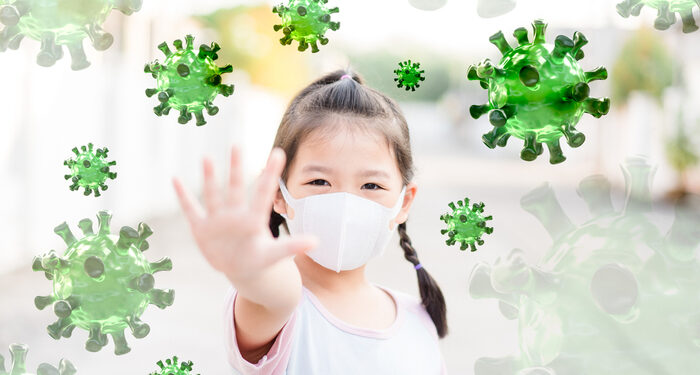It’s more important than ever to start teaching children to be aware of their physical distance with their peers, and to practice healthy hygiene in youth fitness and sports camps this summer. Integrating safe practices into your summer lessons will be beneficial for every camper’s safety, and provide the opportunity for children to begin practicing spatial awareness and healthy hygiene before they go back to school.
Providing an environment for children to learn and practice physical distancing with other children will build healthy habits not only for camp, but future physical education and sports classes. Children need to continue learning to keep their hands away from their face, use a tissue, cough or sneeze into their elbow, and wash their hands to keep themselves and their community safe.
During camp, it is crucial for the instructor to clearly define their expectations regarding campers practicing physical distancing with their peers and healthy hygiene behaviors during activities. The instructor would communicate to campers that physical distancing and healthy hygiene behaviors are defined as campers keeping six feet distance from their peers and keeping their hands away from their face. Providing examples and demonstrations to campers is an effective strategy to ensure campers understand the expectations.
The instructor would show campers during an activity the distance between them and another camper that would meet the criteria. The instructor would also demonstrate how to cough in their elbow, how to access a tissue and hand sanitizer, and how to keep their hands away from their face.
Antecedent and Consequence Strategies
An effective way of teaching spatial awareness and healthy hygiene is to have antecedent and consequence strategies in your lesson plan. A few antecedent strategies include, but are not limited to, visual prompts such as poly spots that provide physical distancing, a tissue box and hand sanitizer in view, and easy access with a sign showing how to cough into your elbow.
Another antecedent strategy is to provide verbal instructions before class begins, such as “Remember to be aware of the space between your peers and you, and keep your hands away from your face.” Providing consequence strategies will increase the likelihood of physical distancing and healthy hygiene behaviors in the future.
A few consequence strategies consist of providing positive praise when campers are demonstrating physical distancing and healthy hygiene behaviors, and providing points when campers meet physical distancing criteria and healthy hygiene during activities. The camp can then use their points together to access a fun game or party.
Creating a fun point system will increase the likelihood they will work together as a team to gain points to access their fun game or party. It is less motivating to place demands on campers and more motivating to communicate to campers how they can earn a fun game or activity. It is more productive to focus on motivating students rather than on compliance.

Holly Metzger-Brown
Holly Metzger-Brown, M.Ed., CSA, GC-ABA, BCBA, LBS is the Learn & Play Director at the York Jewish Community Center. She graduated from Lycoming College, where she played varsity tennis and basketball. She has a master’s degree in teacher leadership and education. Holly is a Board Certified Behavior Analyst, certified POINTE PROGRAM consultant, and certified tennis instructor. She has been published in several books, journals and magazines, including Onsite Fitness, Netplay, Wacky Ways to Succeed with ADHD, Strategies, TennisPro, Yorkids and Community Rec. She has been locally and nationally recognized for her youth fitness and sports programs.










